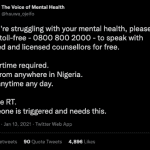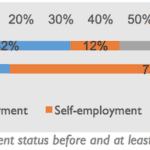Six Ways MarketBookshelf.com Can Improve How We Share Global Health Market Research
No one wants to re-invent the wheel.
When a consultant starts a new project with a new client it’s critical to access key research, reports and other resources to ensure research budget dollars are spent wisely. Gathering all of this information also means consultants do not revisit well-worn territory. Indeed, in the private sector, particularly in the pharmaceutical or biotechnology sectors, the first question a consultant asks at the start is: What information is available?
Assembling that data creates a launching pad of sorts. In some cases that data can be tested and in other cases it can be built upon – ensuring that new research will be both insightful and actionable. In the global health arena, preventing research duplication is especially important. Reducing duplicative research is beyond challenging, given the large number of organizations working at country, regional and global levels; from multiple viewpoints and in multiple health areas. This dynamic generates a high risk for research duplication and inefficient funding usage, especially when there are few platforms for cross-organization dissemination outside of the lengthy timelines for peer-reviewed journals. At the same time, experts such as Jeffrey Sachs have estimate a $25 billion funding gap to reach current global health goals.
It’s with these challenges in mind that we are proud to present MarketBookshelf.com, a new, one-stop destination for global health market literature. This free site was launched last month with documents from over 140 contributing organizations, with many more contributing to health care market analyses not yet made publicly available. These expert contributors span across NGOs, donors, government bodies, private sector manufacturers and more. Market Bookshelf aims to consolidate market literature across donors, sectors and health areas to improve – and ultimately change – how the global health market community disseminates its research.
Here are six key goals for the platform:
1. easing the dreaded literature review
Conducting a literature review is a necessary step to beginning any research project and a task that every student, professor, researcher and program implementer likely performs multiple times a year. But for the world of health care markets in developing countries, finding relevant previous and current work can be a headache – especially when attempting to source private sector knowledge. Project reports, briefs, evaluations and peer-reviewed articles span numerous databases, and it takes more than a simple Google Scholar search to find the publications truly relevant to the topic, country, or health area at hand. Market Bookshelf provides researchers with a platform to explore a wealth of publicly available, market-specific global health documents – all in one place.
2. Introducing ‘Healthy Market’ Thinking to Information Sharing
As a global health community, we are increasingly attuned to the importance of well-functioning markets, with optimal conditions related to supply, price, quality and sustainability. Thinking about global health information as a market, we can see imperfections related to low awareness, uneven availability and sustainability. It was this kind of thinking that led to a workstream and then a partnership between the William Davidson Institute at the University of Michigan, the Reproductive Health Supplies Coalition and USAID. We collaborated on Market Bookshelf, which is set up to facilitate transparent dissemination to all players in the field of global health care markets – from students to private sector manufacturers to donors. (Note: WDI is the parent organization of NextBillion.net.)
3. Facilitating Cross-Organization Dissemination
Market Bookshelf is not the first repository search tool for global health knowledge; several organizations have extensive online collections of their own work. But what has been lacking is a tool that extends across organizations, allowing the user to simultaneously search and compare research funded by USAID, the Bill and Melinda Gates Foundation, Gavi, the Global Fund and many others. Existing tools are often limited in scope – covering only work from one donor, or far too broad – encompassing every possible topic in global health. And often the most useful information (project reports, evaluations, and other grey literature) remains unpublished, sitting on a program manager’s shelf or computer and out of the hands of individual researchers doing similar work. As members of the Market Bookshelf team, we are actively engaging with donor organizations to source documents and spread awareness of this opportunity for enhanced dissemination.
4. Taking Knowledge to New Heights
When practitioners are unaware of research from other organizations, the major risk is using new funds to generate the same insights over and over again. With increased access comes an increased ability to build upon previous insights, allowing the field to quickly evolve and respond to new research findings as they are made. Market Bookshelf includes reports on both market analyses and market interventions, allowing these two critical pieces of information to be joined and transformed into new research.
5. Making Sparse Resources Stretch
The scarcity of resources in the global health field is no secret. Projects are often forced to run under budget, end early, or conclude before interesting findings are further explored. By increasing the availability of project knowledge, we will all contribute to better returns on the investments in research and knowledge generation. This improves the efficiency of the public good and increases the value of information assets.
6. Increasing Visibility for Grey Literature
As use of the Market Bookshelf tool increases, it can function as a platform for students, professors and practitioners alike to gain exposure for their current work and research. Because Market Bookshelf allows for featuring grey literature, reports and briefs can be readily communicated to the global health market community far quicker than the timeline for peer-reviewed journals. As a community, we put too much time and effort (not to mention blood, sweat and tears) into project reports for them to gather dust on a program officer’s shelf. Every document is uploaded by a member of the Market Bookshelf team (users do not upload their own documents) to ensure document authenticity and validity. Check out a short video with more on the mission and goals of Market Bookshelf below:
To accomplish this change in practice regarding market knowledge dissemination, input from the community at large is critical. Simply go to www.MarketBookshelf.com/submit and take two minutes (yes, it only takes two minutes) to attach a file of your relevant, original work and send it to the Market Bookshelf team for possible inclusion on the site. As the site expands through user contributions, its value will grow – as will the impact we can all have on improving knowledge sharing in the sector.
Join us for a free one-hour webinar at 10 a.m. Dec. 12 to demonstrate how to use Market Bookshelf for information acquisition and sharing. Please register here.
Erika Beidelman is a research associate for the Healthcare Initiative at the William Davidson Institute at the University of Michigan (WDI).
Andrea Bare is a senior advisor with the WDI, where she partners with donor, consulting and implementing organizations to analyze global health markets and advance private sector solutions.
Photo by Maarten van den Heuvel on Unsplash
- Categories
- Health Care, Technology




